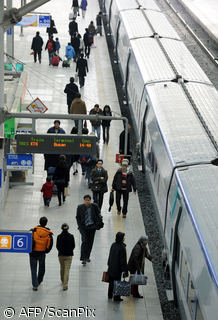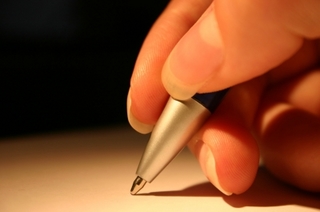Seeking to cool market sentiment, the head of Opec on Sunday said the organisation is concerned about stubbornly high prices that defy what he described as a well-supplied market and adequate crude stocks worldwide
Published:
7 March 2005 y., Monday
Seeking to cool market sentiment, the head of Opec on Sunday said the organisation is concerned about stubbornly high prices that defy what he described as a well-supplied market and adequate crude stocks worldwide.
The statement by Sheik Ahmad Fahad Al Ahmad Al Sabah, Opec's president and secretary-general, was issued in a clear attempt to dampen speculative buying that last week briefly drove prices above US$55 a barrel before they settled in the still historically high lower US$50s.
More bullish oil was poured on the fire on Saturday, when Venezuelan President Hugo Chavez said Opec countries could fix a price for crude in a range of US$40 to US$50 per barrel, adding that low petroleum prices were a thing of the past.
At a crucial Opec meeting in Iran on March 16, some analysts are expecting the cartel to cut production to boost oil prices, which have skyrocketed over the past year on supply worries.
Al Sabah, in contrast, suggested present prices were too high, considering market fundamentals.
"Increased investment in commodities by speculators has caused further sizable upward pressure on prices,'' said the statement, issued by Opec headquarters in the Austrian capital.
Other factors for the surge included the late cold snap in the Northern Hemisphere; unexpected outages downstream at wells and port facilities; expectations of continued strong demand, "and ongoing concerns about the slowdown in the pace of growth'' by non-Opec suppliers, he said.
Šaltinis:
AP
Copying, publishing, announcing any information from the News.lt portal without written permission of News.lt editorial office is prohibited.
The most popular articles
 The mission held constructive discussions with Prime Minister Emmanuel Nadingar, Finance Minister Gata Ngoulou, Infrastructure Minister Adoum Younousmi, and other senior officials.
more »
The mission held constructive discussions with Prime Minister Emmanuel Nadingar, Finance Minister Gata Ngoulou, Infrastructure Minister Adoum Younousmi, and other senior officials.
more »
 The EBRD is helping to improve the quality of power supply and stimulate renewable sources of energy in the Caucasus with an €80 million sovereign loan to Georgia for the construction of a new high voltage transmission line - the Black Sea High Voltage line, which will interconnect Georgia and Turkey.
more »
The EBRD is helping to improve the quality of power supply and stimulate renewable sources of energy in the Caucasus with an €80 million sovereign loan to Georgia for the construction of a new high voltage transmission line - the Black Sea High Voltage line, which will interconnect Georgia and Turkey.
more »
 The EBRD is helping to improve the infrastructure of the Georgian capital, Tbilisi, with a €100 million loan for the construction of a new railway route bypassing the city.
more »
The EBRD is helping to improve the infrastructure of the Georgian capital, Tbilisi, with a €100 million loan for the construction of a new railway route bypassing the city.
more »
 One of the men considered to be the founding fathers of the euro currency met MEPs on the Foreign Affairs Committee Tuesday (16 March) to talk about transatlantic relations.
more »
One of the men considered to be the founding fathers of the euro currency met MEPs on the Foreign Affairs Committee Tuesday (16 March) to talk about transatlantic relations.
more »
 European Trade Commissioner Karel De Gucht today opened a conference focused on the European Union's trade policy towards developing countries.
more »
European Trade Commissioner Karel De Gucht today opened a conference focused on the European Union's trade policy towards developing countries.
more »
 At the beginning of the 2000s, state ownership in financial intermediation in Mexico accounted for about 20 percent of the total credit of the banking system, provided through development financial institutions and funds.
more »
At the beginning of the 2000s, state ownership in financial intermediation in Mexico accounted for about 20 percent of the total credit of the banking system, provided through development financial institutions and funds.
more »
 Halving the number of business failures by offering individual support, doubling the number of young people who want to start their own business or raising by 500% the number of enterprising new cooperatives are just some of the projects nominated for the European Enterprise Awards 2010.
more »
Halving the number of business failures by offering individual support, doubling the number of young people who want to start their own business or raising by 500% the number of enterprising new cooperatives are just some of the projects nominated for the European Enterprise Awards 2010.
more »
 The European Commission has published the fourth call for proposals for the creation and upgrade of freight transport services under the second Marco Polo programme.
more »
The European Commission has published the fourth call for proposals for the creation and upgrade of freight transport services under the second Marco Polo programme.
more »
 The European Central Bank (ECB) today announced a programme of technical cooperation with the Central Bank of Bosnia and Herzegovina, in collaboration with a number of euro area national central banks (NCBs).
more »
The European Central Bank (ECB) today announced a programme of technical cooperation with the Central Bank of Bosnia and Herzegovina, in collaboration with a number of euro area national central banks (NCBs).
more »
 The EU disbursed today €1 billion to Romania, the second instalment of a €5 billion loan, which was agreed in May 2009 as part of a multilateral financial assistance package.
more »
The EU disbursed today €1 billion to Romania, the second instalment of a €5 billion loan, which was agreed in May 2009 as part of a multilateral financial assistance package.
more »